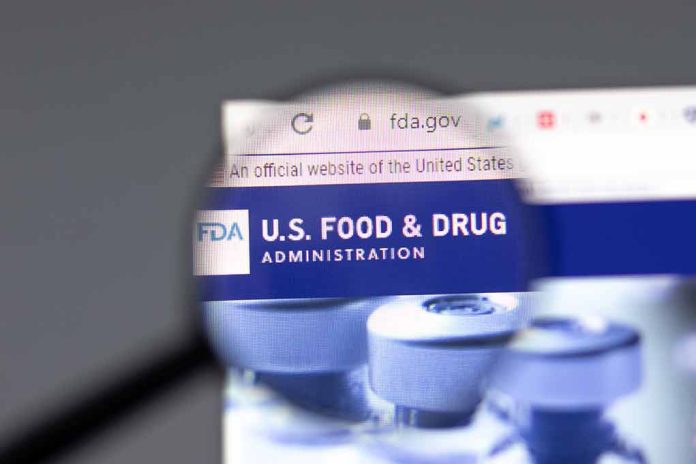
Life-threatening danger lurks in popular yogurt parfaits as Knockro Inc. issues nationwide recall of Bonya-brand products containing undeclared almonds, putting allergy sufferers at serious risk while FDA emphasizes the critical nature of proper food allergen labeling.
Key Takeaways
- Knockroe Inc. has recalled Bonya-brand yogurt parfaits nationwide due to undeclared almonds in the granola component, posing serious health risks to those with almond allergies.
- The recall affects all flavors of low-fat yogurt parfaits distributed in 12-ounce clear plastic cups with an expiration date of May 5, 2025.
- The FDA has identified a temporary breakdown in production and packaging processes as the cause of this potentially dangerous labeling oversight.
- Despite no reported illnesses so far, consumers with almond allergies are advised to return products to the place of purchase for a full refund.
- Almonds are among the nine major food allergens identified by the FDA, capable of triggering reactions ranging from mild symptoms to life-threatening anaphylaxis.
Nationwide Recall Threatens Allergy Sufferers
On May 12, 2025, Knockro Inc. announced a critical recall of their Bonya-branded low-fat yogurt parfaits after discovering undeclared almonds in the granola component. The FDA promptly published the alert, warning consumers across the country about potential health risks. The affected products were distributed nationwide in 12-ounce clear plastic cups with an expiration date of May 5, 2025, and include vanilla, strawberry, raspberry, peach, mango, and blueberry flavors. This oversight represents yet another example of regulatory failures in protecting American consumers from avoidable health risks.
“People who have an allergy or severe sensitivity to almonds risk serious or life-threatening allergic reactions if they consume these products ” Stated FDA
Regulatory Oversight and Manufacturing Failures
According to official statements, the alarming oversight occurred “after it was discovered that the almond-containing product was distributed in packaging that did not reveal the presence of almonds.” The FDA investigation revealed the root cause of this potentially deadly mistake: “Subsequent investigation indicates the problem was caused by a temporary breakdown in the company’s production and packaging processes.” While no illnesses have been reported to date, this incident highlights the ongoing concerns with food safety standards and enforcement in America’s food supply chain.
“The law requires that food labels identify the food source of all major food allergens used to make the food. This requirement is met if the common or usual name of an ingredient already identifies that allergen’s food source name (for example, buttermilk).
The FDA’s own requirements clearly state that manufacturers must properly label all major food allergens, which includes tree nuts like almonds. This breakdown represents a failure in both company processes and regulatory oversight. For millions of Americans with food allergies, such oversights aren’t merely inconvenient—they’re potentially life-threatening. While government agencies continue to focus on political agendas, basic consumer protections like ensuring accurate food labeling remain inconsistently enforced, putting hardworking Americans at unnecessary risk Stated President Trump
Consumer Guidance and Health Implications
Knockro Inc. advises consumers who purchased the affected yogurt parfaits to return them to their place of purchase for a full refund. Those with questions can contact the company directly at 914-313-6905. For the millions of Americans living with food allergies, this recall underscores the critical importance of vigilance when consuming packaged foods. Almonds, as one of the nine major food allergens identified by the FDA, can trigger reactions ranging from mild symptoms to potentially fatal anaphylaxis in sensitive individuals.
“The law also requires that the type of tree nut (for example, almonds, pecans, walnuts), and the species of fish (for example, bass, flounder, cod) and Crustacean shellfish (for example, crab, lobster, shrimp) be declared. The allergen’s food source must be declared at least once on the food label in one of two ways,”
This incident serves as a stark reminder of how regulatory failures and corporate oversights directly impact the health and safety of American families. While governmental agencies continue expanding bureaucracy in many sectors, they repeatedly fail at their most basic responsibility—protecting citizens from preventable harm. For consumers with food allergies, every meal becomes a potential hazard when manufacturers and regulators fail to maintain proper standards. American families deserve better protection and accountability from both the companies producing their food and the agencies tasked with ensuring its safety.



